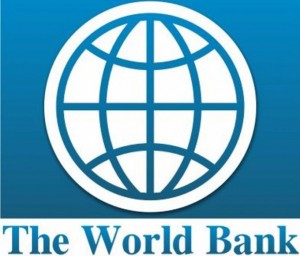Financial inclusion is critical for young people – World Bank
 Financial inclusion is critical for young people in Ghana, Ms Kathleen Beegle, the Programme Leader of the World Bank Country Office in Ghana has said.
Financial inclusion is critical for young people in Ghana, Ms Kathleen Beegle, the Programme Leader of the World Bank Country Office in Ghana has said.
She said research showed that among Ghanaians 16-30 years old, four out of five are out of school; and that this group needs to have meaningful livelihoods options.
“But for those that are working, most of them (two thirds), their work will not come with an employer and a regular pay check.
“Rather they are in some form of self-employment –they are in microenterprises, they are street hawkers, they are in small holder farming,” she stated.
Ms Beegle, who was speaking in Accra at the opening ceremony of the Fourth Child and Youth Finance International (CYFI) Regional Meeting for Africa, said “whether one should label them all as entrepreneurs can be debated. But what is not debated is that being financially wise will be critical for their success and ability to improve their livelihood”.
The two-day conference on the theme: “Advancing Youth Economic Empowerment for Inclusive Growth,” brought together Africa’s finest experts in the area as well as key stakeholders to work towards establishing regional and national-level strategies, frameworks and partnerships that seek to address issues of financial education, financial inclusion and entrepreneurship of children and youth.
It was organised by Child and Youth International in collaboration with Microfinance and Small Loans Centre (MASLOC) and Youth Enterprise Support (YES), under the auspices of CFAO Motors, National Investment Bank, HFC Bank, the Graphic Group of Communications and the Ghana National Petroleum Corporation.
“The ‘access to finance’ agenda can be mistaken for simply giving greater access to bank accounts and making loans more readily available. But here we have evidence from across the developing world that underscores how difficult this agenda is,” she said.
Ms Beegle said the CYFI’s agenda, to enhance the financial capabilities of children and youth – with the aim to give children and youth the knowledge to make wise financial decisions, to accumulate savings, and to build the skills for their livelihood and thus break the cycle of poverty; is an agenda that echoes the goals of the World Bank.
She pointed out that the agenda cuts across their programmes in social protection and labour, in poverty and equity, in finance and markets, in education, and others, such as ICT.
She said CYFI is a valuable tool for different groups and initiatives to learn about what works and new innovations in the broad area.
On savings; Ms Beegle said there seems to be high demand for savings accounts, but, interventions that encourage people to open savings accounts do not guarantee that they would make deposits into those accounts and accumulate savings.
“Efforts like market campaigns, peer groups, and commitment savings designs can help increase take-up and use of savings accounts. And new technology (mobile banking and direct deposit options) can further expand access and use,” she said.
She said microenterprises and farms are where the majority of youth work in Africa; yet, many interventions have not shown big impacts on profits or business growth.
She said skills training and microfinance have yet to show the anticipated major impacts on profits and poverty.
“On the other hand, there is emerging evidence that ‘capital-centric’ interventions seem to hold much promise. However, these programmes tend to be the exception rather than the rule,” the Programme Leader said.
She said the evidence suggests that too little capital and the absence of affordable credit hold income earnings back for the self-employed – the main type of work of young people.
Ms Beegle said “the evidence suggests that young people have high returns to capital, yet this area is still arguably over-shadowed by training programmes”.
“This area is still emerging – we still don’t know that is the right package and whether it can be scalable at a reasonable cost.”
She said at the World Bank, the officials engage directly with governments to help design and support development programmes.
“But increasing financial inclusion and growing economic citizenship for youth, like many other areas of development, are not only public sector agendas.
“Ultimately, success in these areas will depend on the work of the private sector and NGOs,” she said.
Ms Beegle observed that it is critical that the World Bank and governments learn from each other and work with these groups to reach their common goals of increasing financial inclusion, reducing poverty, and promoting economic and social development.
She said networks like the CYFI ware critical for building bridges between the various groups engaged in this area.
Mrs Sedina Tamakloe Attionu, the Chief Executive Officer (CEO), MASLOC, said: “We need to achieve youth-led sustainable development by creating viable livelihoods and opportunities for youth to contribute to inclusive economic development to avert the dangers of youth bulge, lack of access to entrepreneurial skills training and development and funding opportunities for young entrepreneurs.”
Mrs Helga Boadi, the CEO, YES, urged the youth to take advantage of the services her organisation provides.
Ms Jeroo Billimoria, the Managing Director, Child and Youth Finance International, the Netherlands, called for the promotion of banking habits among children and the youth.
Source: GNA
